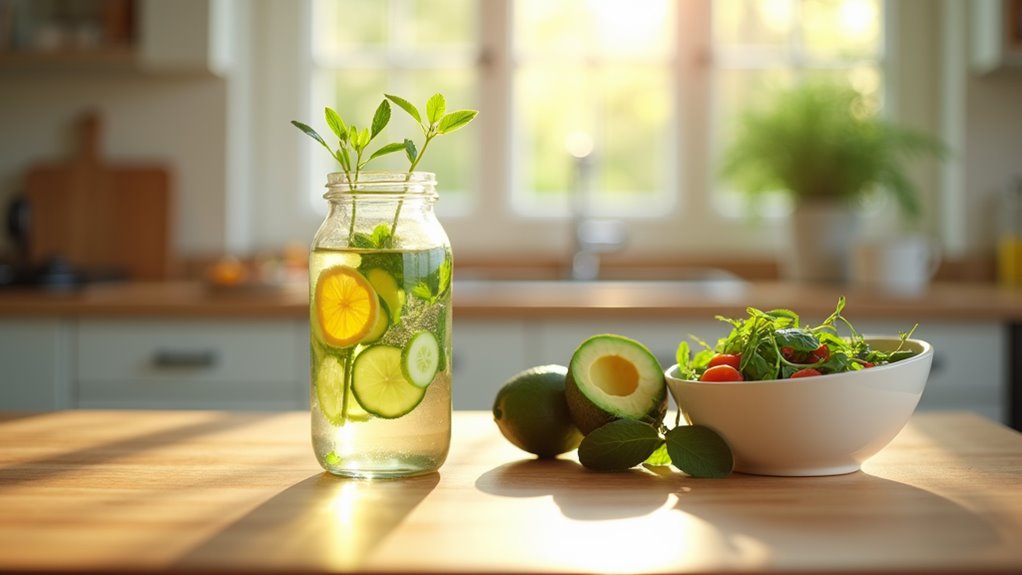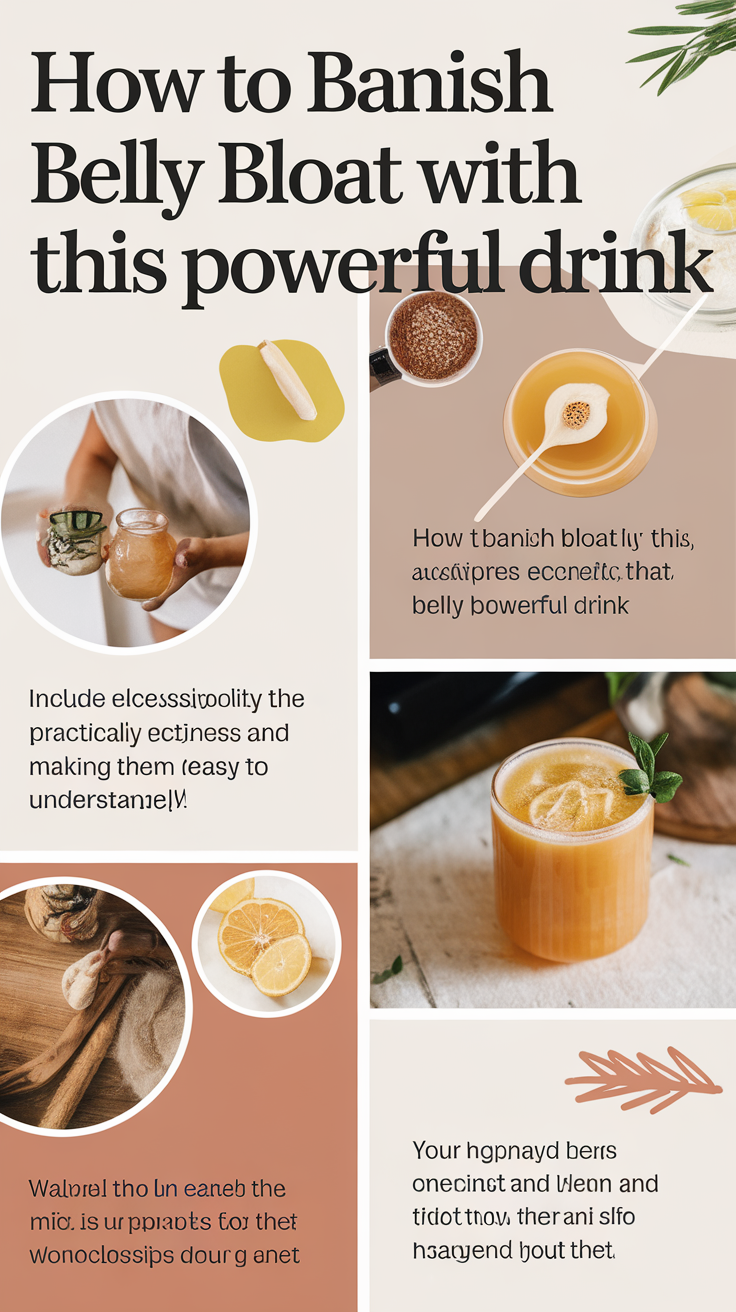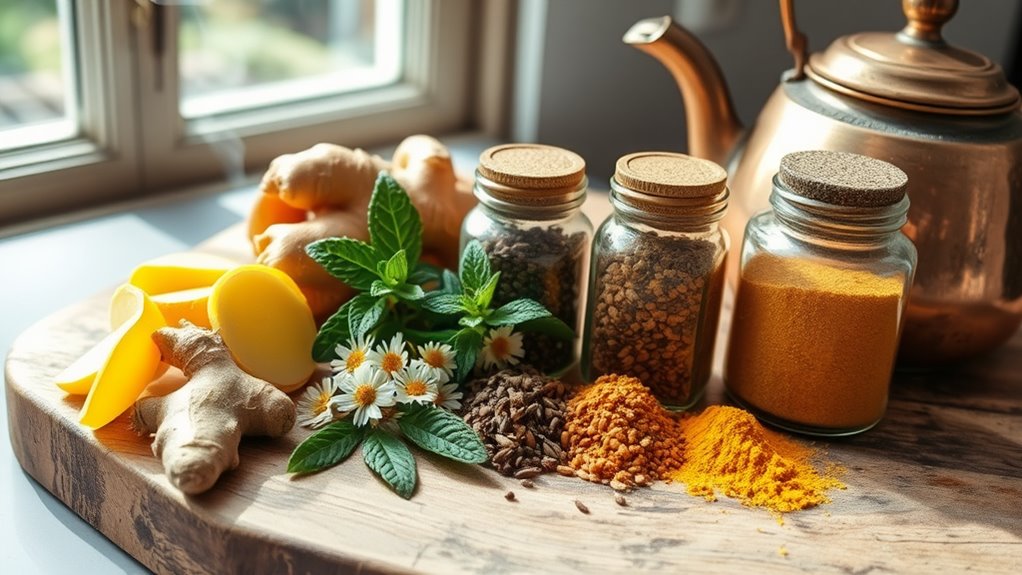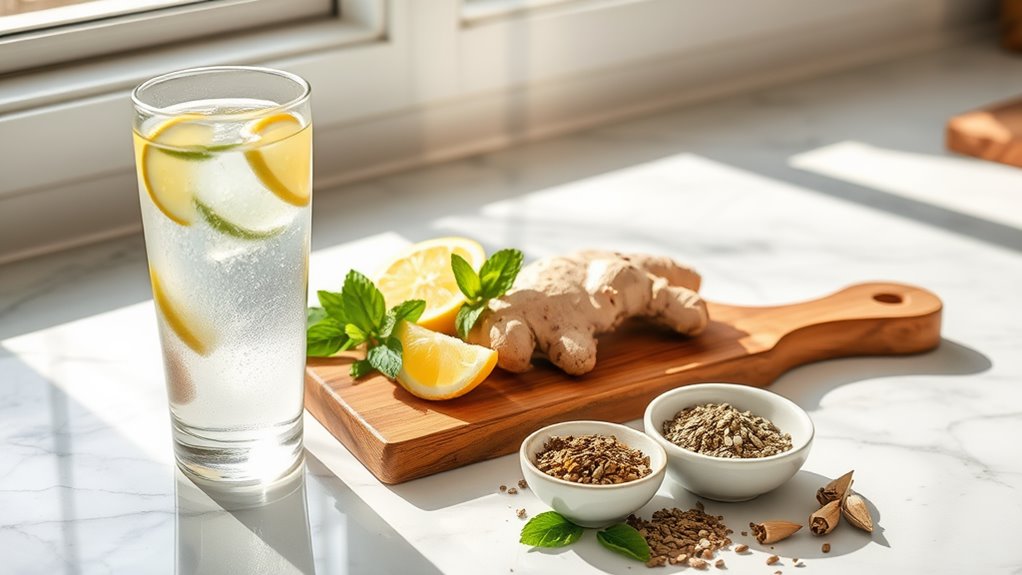Stop Bloating and Belly Discomfort With These Quick Fixes
To quickly reduce bloating and belly discomfort, you’ll need to address both immediate symptoms and underlying causes. Start by sipping peppermint or ginger tea while practicing gentle abdominal massage in clockwise motions. Take a 10-15 minute walk after meals, and incorporate diaphragmatic breathing exercises to release trapped gas. Limit gas-producing foods and eat smaller, more frequent meals throughout the day. Following these research-backed strategies can lead you to lasting digestive relief.
Common Causes of Bloating and Digestive Issues
Recognizing the root causes of bloating and digestive discomfort is essential for effective treatment.
Your symptoms may stem from eating too quickly, consuming gas-producing foods, or swallowing excess air while drinking.
Food intolerances, particularly to lactose or gluten, can trigger bloated belly symptoms that require specific remedies.
Other common causes include bacterial imbalances in your gut microbiome, hormonal fluctuations, and certain medications.
Chronic conditions like IBS, celiac disease, or inflammatory bowel disease may also be responsible.
Understanding these triggers helps you identify appropriate treatment strategies and determine when to seek medical evaluation. Additionally, an imbalance of beneficial and harmful bacteria can significantly contribute to bloating and discomfort.
Natural Remedies for Instant Relief
When bloating strikes, several natural remedies can provide quick relief without the need for medication.
You’ll find immediate comfort by sipping peppermint or ginger tea, which help relax digestive muscles and reduce inflammation. Ginger tea, in particular, is noted for its ability to reduce intestinal inflammation and help expel excess gas.
Try gentle abdominal massage in clockwise circles to stimulate digestion and release trapped gas.
Walking for 10-15 minutes after meals promotes gut mobility and reduces bloating.
Apple cider vinegar, diluted in water before meals, can aid digestion by increasing stomach acid production.
Additionally, activated charcoal supplements can effectively absorb excess gas and reduce abdominal distension within 30-60 minutes.
Dietary Changes That Make a Difference
Simple dietary modifications can greatly reduce bloating and digestive discomfort.
You’ll find relief by limiting foods high in FODMAPs – fermentable carbohydrates that can trigger gut distension.
Replace refined grains with whole grains, and cut back on sodium-rich processed foods that cause water retention.
Track your meals to identify trigger foods, particularly dairy, gluten, and artificial sweeteners.
Incorporate digestive enzymes through foods like pineapple and papaya.
Consuming smaller, more frequent meals prevents overloading your digestive system.
Add probiotic-rich foods like yogurt and fermented vegetables to support healthy gut bacteria and reduce inflammation, as a balanced gut microbiome is crucial for proper food processing and gas prevention.
Simple Exercises to Reduce Bloating
Physical activity complements dietary changes by stimulating digestion and reducing abdominal discomfort.
You’ll find relief through specific exercises that target bloating: walking for 15-20 minutes after meals, gentle yoga poses like Child’s Pose and Cat-Cow stretches, and targeted core rotations.
For immediate relief, try lying on your back and performing bicycle crunches for 2-3 minutes.
This movement massages your intestines and promotes gas release.
You can also practice diaphragmatic breathing exercises: inhale deeply through your nose, expanding your belly, then exhale slowly through pursed lips.
Repeat 5-10 times to stimulate your digestive system. Incorporating gentle exercises into your routine can enhance gut motility and further reduce bloating.
Lifestyle Habits to Prevent Future Discomfort
Making long-term lifestyle adjustments proves essential in preventing recurring bloating and digestive discomfort.
You’ll need to eat slowly and chew thoroughly, allowing proper breakdown of food before it enters your digestive system. Don’t skip meals or overeat – instead, consume smaller portions throughout the day.
Limit carbonated beverages, avoid talking while eating, and don’t use straws, as these habits introduce excess air into your system.
Stay hydrated with water, maintain regular meal times, and keep a food diary to identify trigger foods. Additionally, incorporating anti-bloating foods like ginger and peppermint can significantly enhance your digestive health.
Get adequate sleep and manage stress through meditation or deep breathing exercises.







